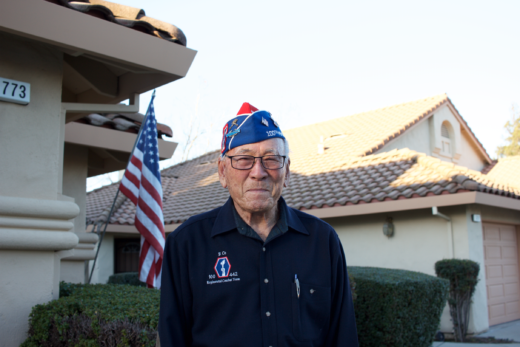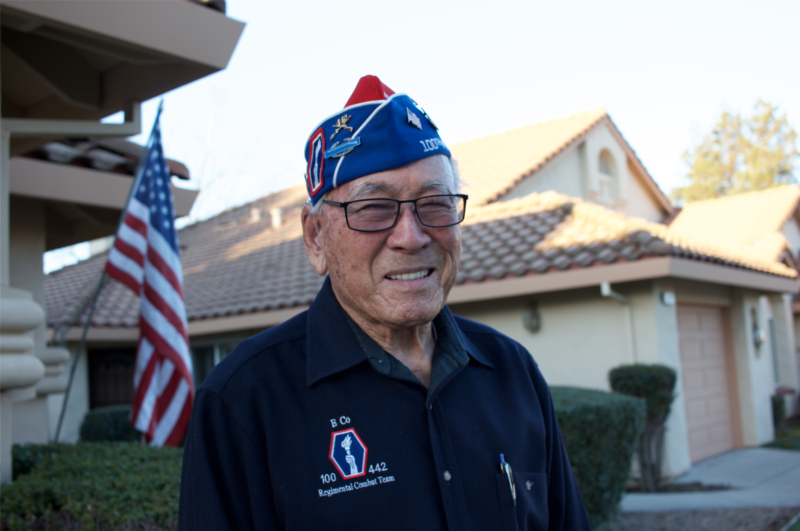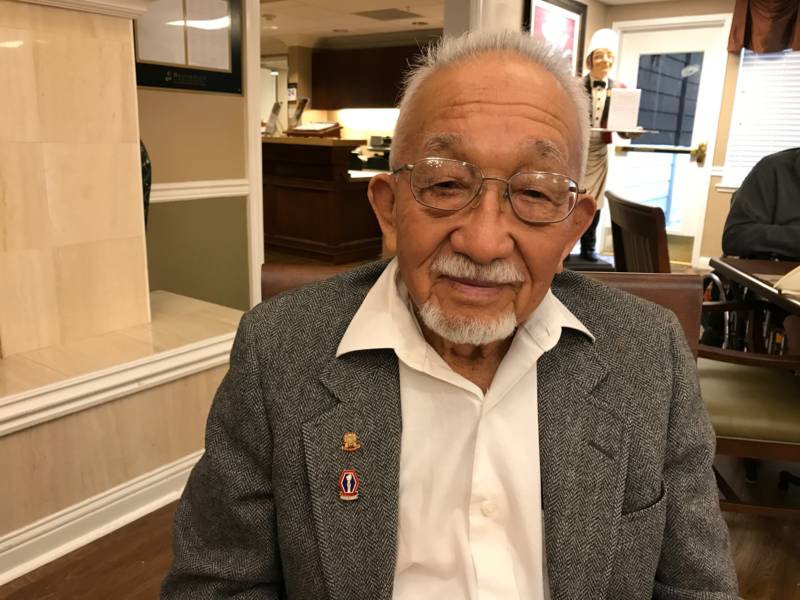Bay Curious listener Marcy Ballard wrote to us wanting to know more about the 442nd Regimental Combat Team — a segregated, Japanese-American unit that fought for the U.S. during the Second World War.
She’s pretty sure they must have some remarkable stories to tell.
After all, these were men considered to be enemy aliens by the government because of their Japanese heritage. Offensive Anti-Japanese propaganda was circling everywhere. Many were forced to live in internment camps, surrounded by barbed wire and patrolled by armed guards. And yet, they volunteered to fight for America.
Soon after, the 442nd Regimental Combat Team was created. Its Japanese-American members proved themselves to be valiant soldiers.


